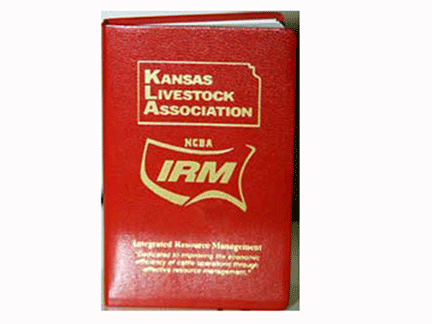By: Lacey Noterman, District Livestock Agent
With the year we’ve all been through, most would agree that everyone have an increased awareness of how vaccinations and immunity are connected. Not only is this true for people, but it is for cattle as well, and the timing of when calves should be vaccinated will be somewhat dependent on when they will be marketed according to the experts at the Kansas State University Beef Cattle Institute.
“Vaccines are most effective when they are given a few weeks before calves are at risk for the disease,” said Brad White, veterinarian and BCI Director.
For calves that leave the farm at weaning, veterinarian Bob Larson said, they are at a greater risk for a respiratory challenge because of the trucking and co-mingling with cattle from different herds. In spring-born calves that sell at weaning, Larson advised calves be given their immunizations three to four weeks ahead of that event for maximum immunity.
“We typically vaccinate calves against the respiratory diseases of IBR and BVD,” Larson said.
For cattle that stay on the ranch past weaning, Larson and White agree that those vaccinations can be given when the calves are a little older.
“To keep the cattle healthy, it is more than just giving a vaccine, it is also about providing the cattle a good diet, and minimizing the stress of weaning. The vaccines are just one tool,” Larson said.
White added that it takes typically two to four weeks before the immunity generated through the vaccine will offer an adequate level of protection.
For those producers who choose to vaccinate the calves at weaning, Larson emphasized the importance of planning for low stress weaning. Some strategies include locating the calves and their dams across the fence from each other as well as offering the water and feed in a familiar location.
“The time to start planning for an October weaning of spring-born calves is now,” White said. “For some vaccines one dose is enough but for others a two-dose regimen is required.”
The bottom line, Larson said, is to time these immunizations to the situation.
“It is important to time the vaccinations to when the greatest risk for disease will be and often that is when there is going to be a change in their diet and an exposure to cattle from other herds,” Larson said.
For more information on this topic, contact Lacey Noterman, Wild West Extension Agent at 620-675-2261 or lnote@ksu.edu

